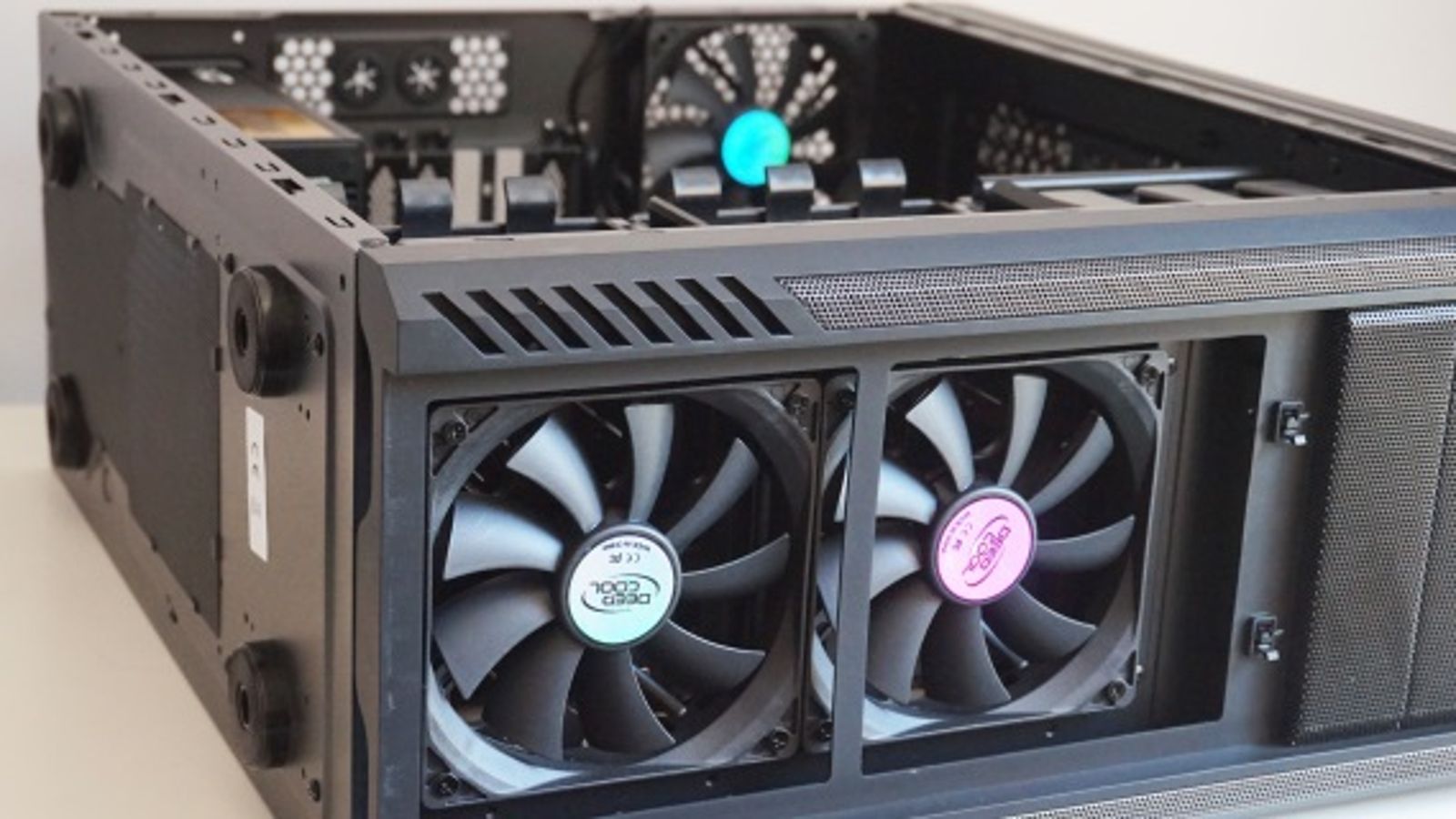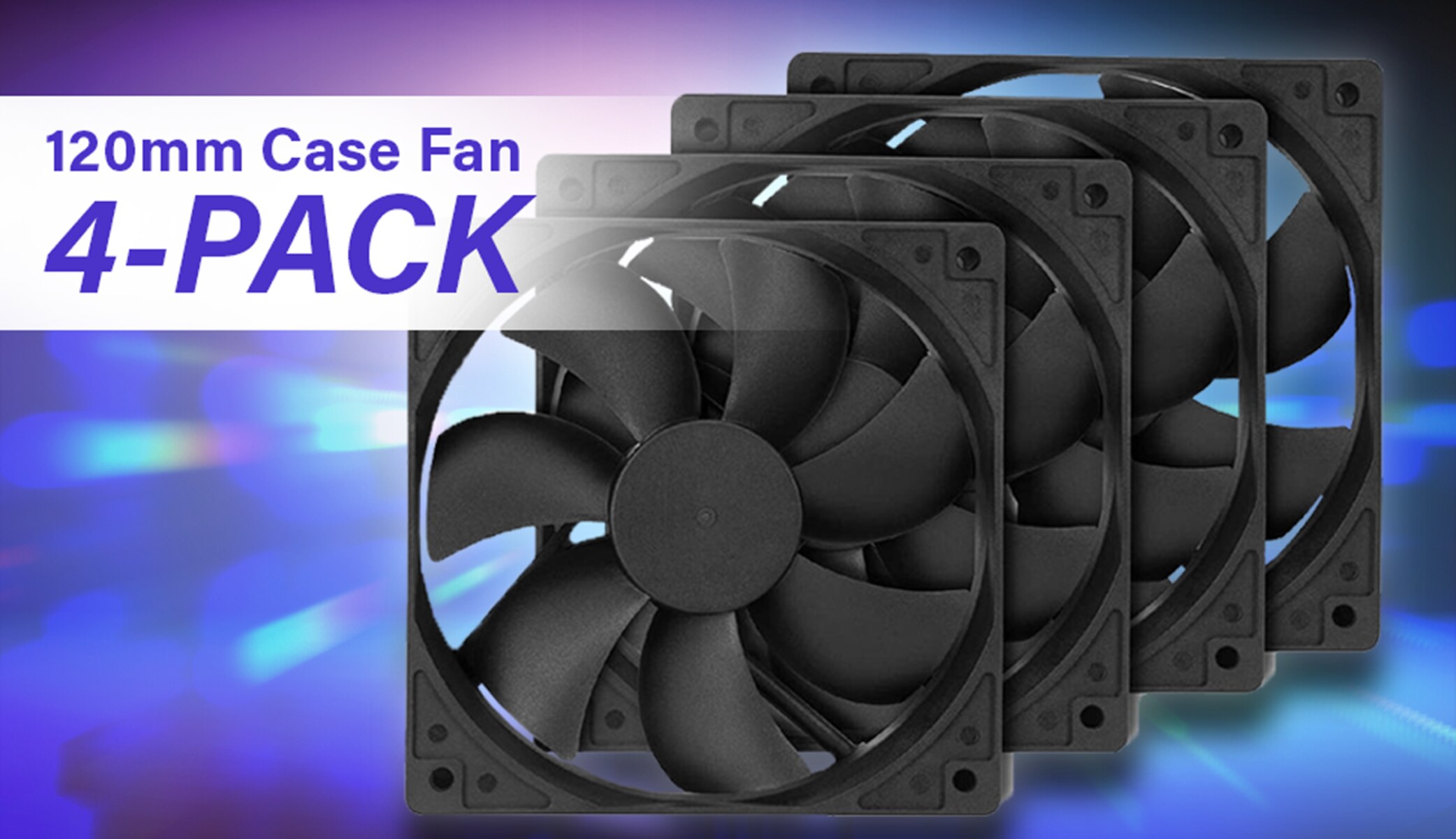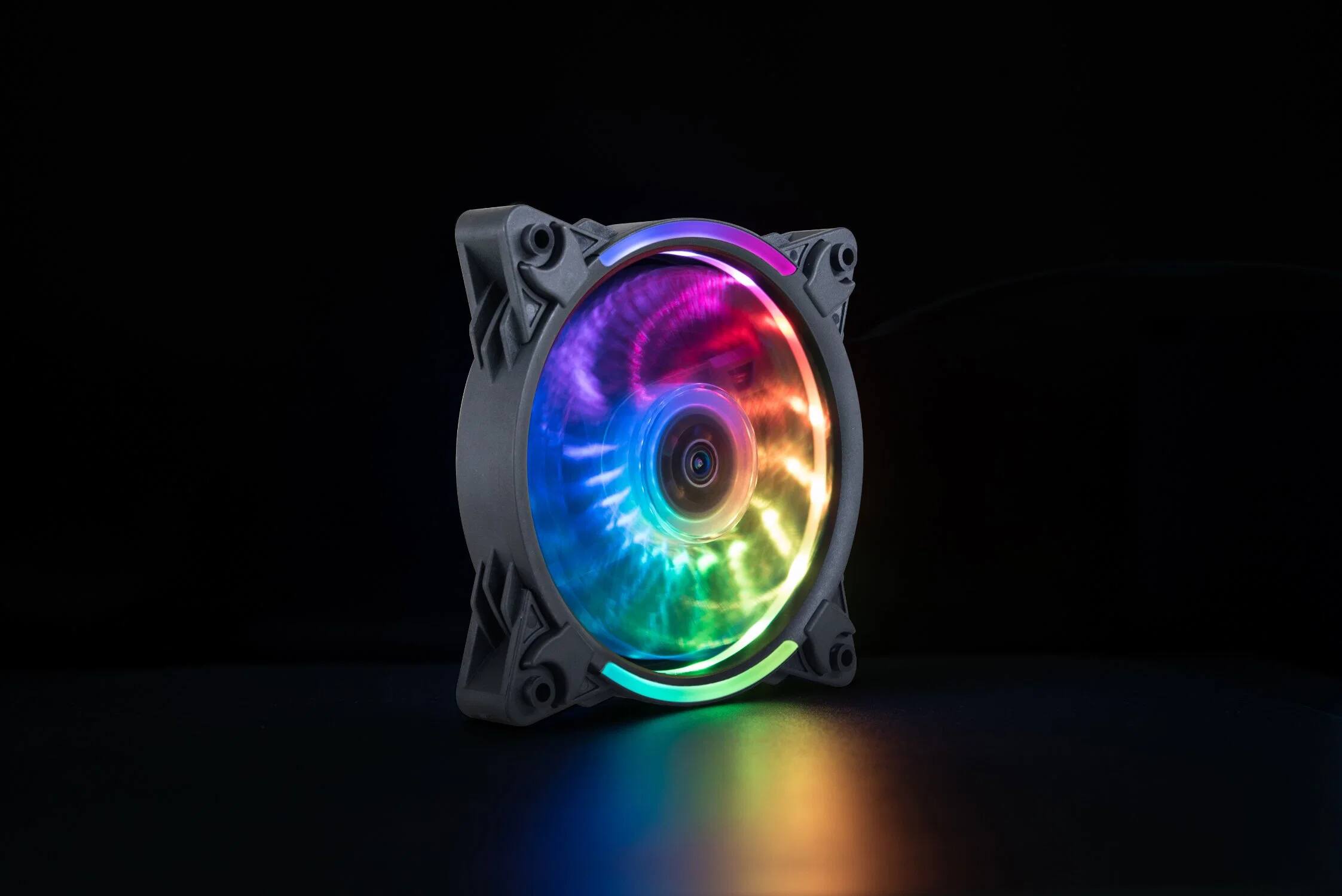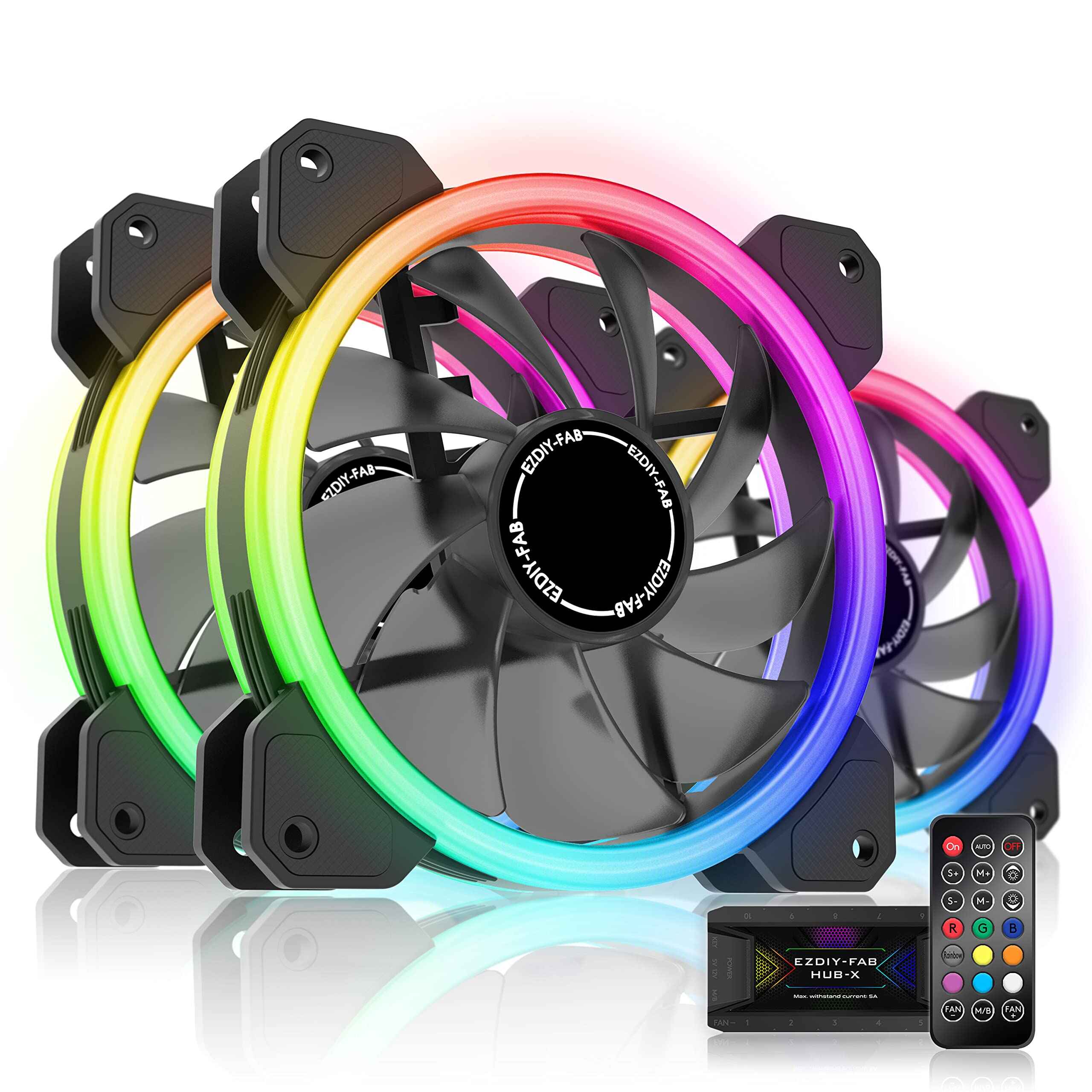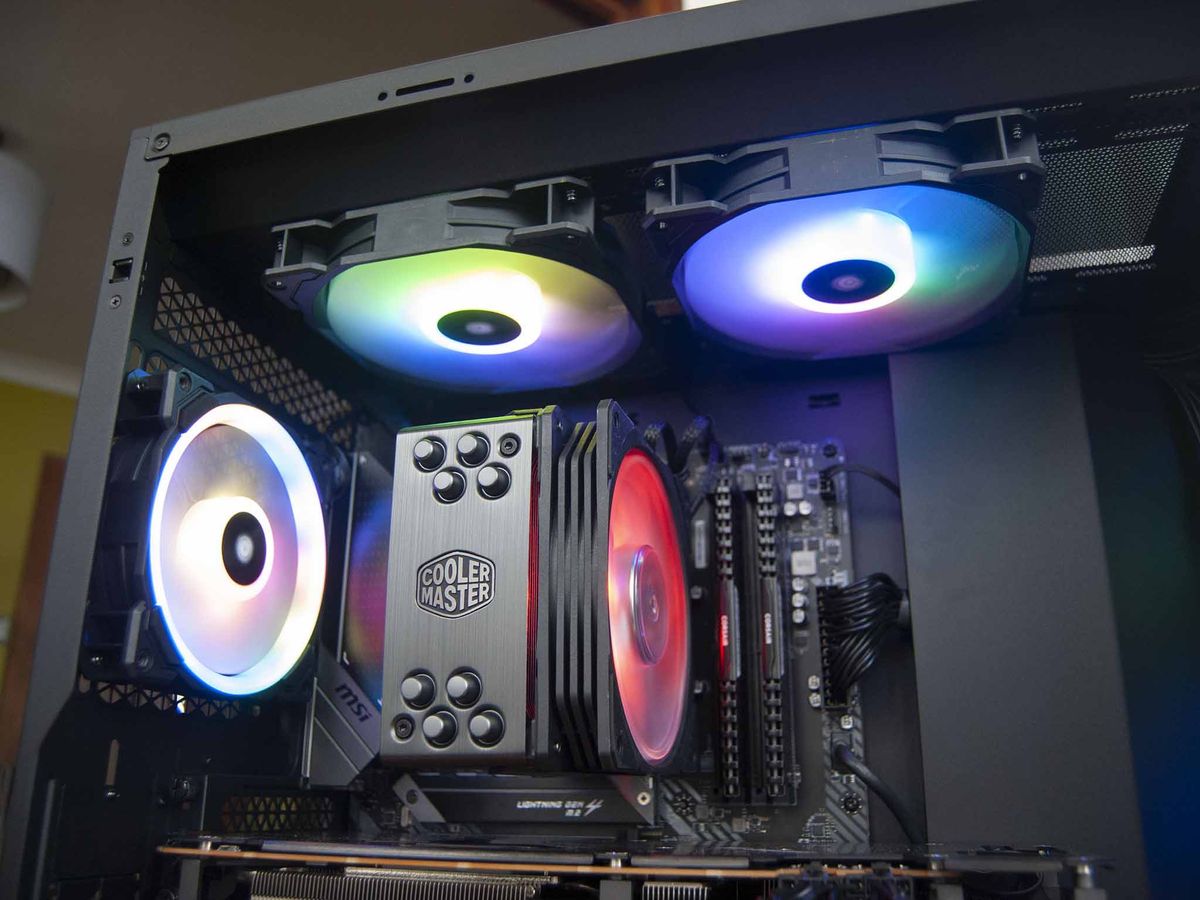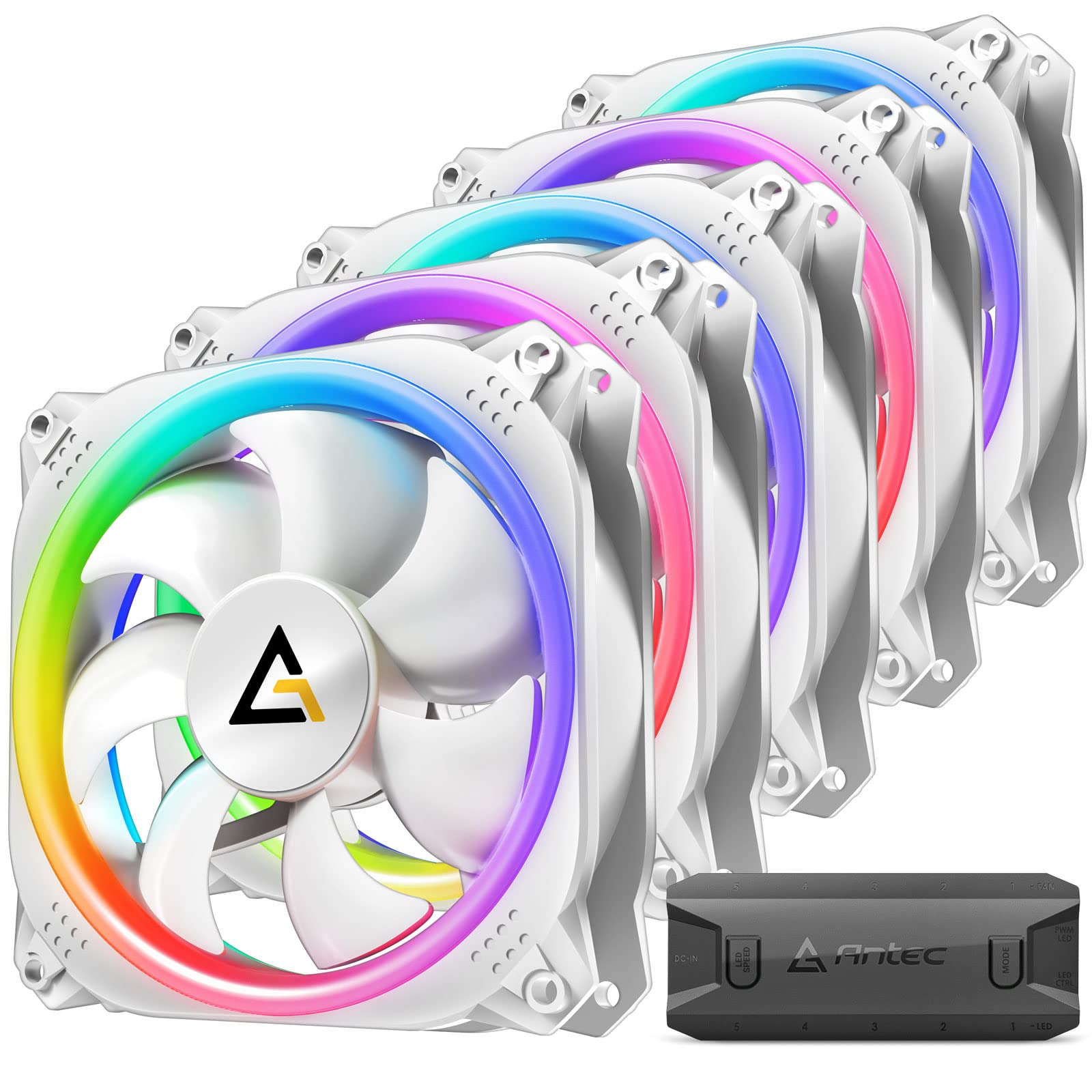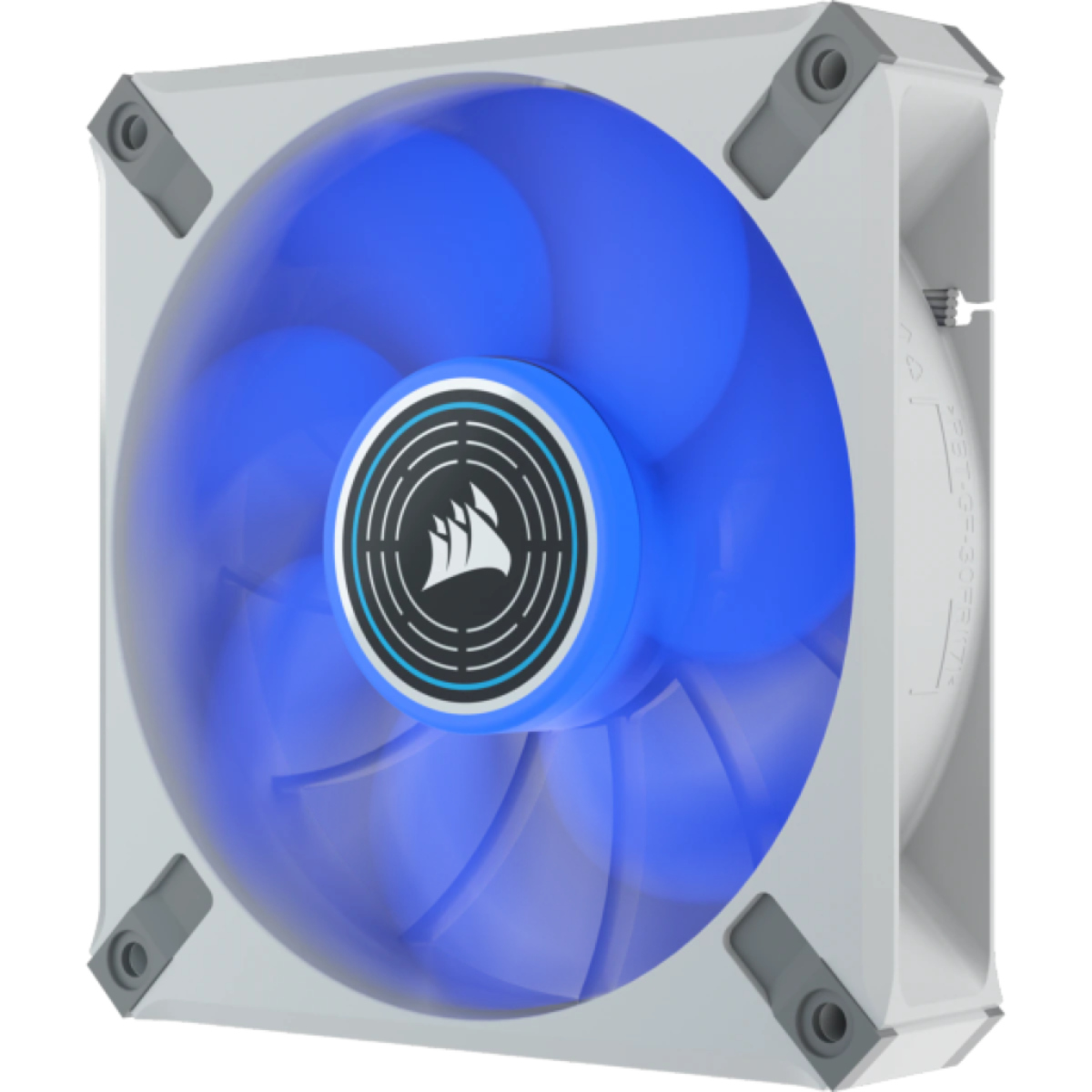Introduction
PC case fans play a crucial role in maintaining optimal airflow within the computer system, ensuring that the components stay cool and function efficiently. However, just like any other mechanical component, case fans have a limited lifespan and will eventually require replacement.
Understanding the factors that affect the lifespan of PC case fans is essential for every computer enthusiast or professional. By being aware of these factors and taking proactive measures, you can extend the longevity of your case fans and avoid unexpected system overheating and component failure.
In this article, we will explore the average lifespan of PC case fans, the signs that indicate it’s time for a replacement, and the common mistakes that can reduce the lifespan of these essential cooling components. Additionally, we will discuss the importance of regular maintenance to keep your case fans performing optimally throughout their lifespan.
By the end of this article, you will have a better understanding of how long PC case fans typically last and what you can do to maximize their lifespan, ensuring a well-ventilated and cooled computer system.
Factors that Affect PC Case Fan Lifespan
Several factors can influence the lifespan of PC case fans. Understanding these factors will help you make informed decisions when it comes to choosing the right fans for your system and maintaining them appropriately. Here are some of the key factors:
1. Quality of the Fan
The quality of the fan itself plays a significant role in determining its lifespan. High-quality fans are usually built with durable materials and designed to operate efficiently for extended periods. Investing in reputable brands and models known for their reliability is crucial for ensuring a longer lifespan for your PC case fans.
2. Usage and Load
The usage and load placed on the fans can affect their lifespan. If your computer runs demanding tasks or operates continuously at high loads, the fans will experience more wear and tear. Over time, this can lead to shorter lifespans. It’s essential to consider the expected workload and choose fans with higher durability for systems that are running intensive applications or operating for extended periods.
3. Dust and Dirt Accumulation
Dust and dirt accumulation is one of the most common causes of reduced fan lifespan. When dust builds up on the fan blades or within the fan housing, it can obstruct airflow, causing the fan to work harder and accumulate more heat. Regular cleaning to remove dust and dirt from the fans and the computer system is essential for maintaining optimal cooling performance.
4. Environmental Factors
The environment in which your computer operates can also impact the lifespan of the case fans. High temperatures, excessive humidity, and exposure to extreme dust or debris can all contribute to accelerated fan deterioration. It’s crucial to keep your computer in a well-ventilated area, away from direct sunlight, and regularly monitor the environmental factors to prevent any adverse effects on the fans.
5. Maintenance and Care
Regular maintenance and care are vital for extending the lifespan of PC case fans. This includes cleaning the fans regularly, ensuring proper cable management to prevent strain on the fan connectors, and checking for any loose or damaged parts that may affect their performance. Neglecting proper maintenance can significantly reduce the lifespan of your case fans.
By considering these factors and taking appropriate measures, you can prolong the lifespan of your PC case fans and maintain an efficient cooling system within your computer. In the next sections, we will delve deeper into how long PC case fans typically last and the signs that indicate they need replacement.
The Average Lifespan of PC Case Fans
The lifespan of PC case fans can vary depending on several factors, as discussed in the previous section. However, on average, a well-maintained and properly used case fan can last anywhere between 3 to 7 years.
The lifespan can be influenced by the quality of the fan, the usage and load placed on it, the accumulation of dust and dirt, environmental factors, and the level of maintenance and care provided. Investing in high-quality fans and ensuring regular cleaning and maintenance can help maximize their lifespan.
It’s important to note that the lifespan mentioned above is an estimate and can vary depending on the aforementioned factors. For example, a fan that operates in a dusty environment or experiences heavy usage may have a shorter lifespan compared to a fan in a cleaner environment with lower usage.
Additionally, it’s worth mentioning that excessive heat can significantly impact the lifespan of PC case fans. If the fans are constantly exposed to high temperatures, it can lead to premature wearing and failure. Therefore, it’s crucial to keep the computer system and its components properly cooled to ensure the longevity of the case fans.
Monitoring the performance of the case fans over time can also provide insights into their lifespan. If you notice a decrease in cooling efficiency, increased noise, or intermittent operation, it may be an indication that the fans are nearing the end of their lifespan and require replacement.
Ultimately, it’s essential to be proactive in managing the lifespan of PC case fans by considering the factors that affect their longevity, providing regular maintenance and cleaning, and replacing them when necessary. By doing so, you can ensure proper cooling and airflow within your computer system, prolong the lifespan of other components, and maintain optimal performance.
Signs that Your PC Case Fans Need Replacement
PC case fans are crucial for maintaining proper airflow and cooling within your computer system. Over time, these fans may start to show signs of wear and tear, indicating that they need to be replaced. Here are some common signs that suggest it’s time to replace your PC case fans:
1. Increased Noise Levels
If you notice that the fans are producing louder or unusual noises, such as grinding, rattling, or clicking sounds, it could be a sign of worn-out bearings or damaged fan blades. As the fans age, the components can become less effective, leading to increased noise levels. Replacing the fans can help restore quiet operation and prevent further damage.
2. Reduced Cooling Performance
If your computer system is running hotter than usual despite proper ventilation and cleaning, it could indicate that the case fans are no longer providing adequate cooling. Over time, fans can accumulate dust, affecting their efficiency. If you notice an increase in the system’s temperature or regular overheating, it is a strong indicator that the case fans need replacement.
3. Intermittent Operation
Case fans should operate consistently and reliably to maintain optimal airflow. If you observe that the fans are not spinning consistently or intermittently stopping and starting, it suggests a malfunctioning fan motor or a faulty connection. In such cases, replacing the fans is necessary to ensure consistent cooling performance.
4. Physical Damage
Inspect the case fans visually for any visible physical damage, such as bent or broken blades, cracks in the fan housing, or loose connections. Physical damage can significantly affect a fan’s performance and may even pose a safety risk. If you notice any signs of damage, it’s crucial to replace the fans promptly to prevent further issues.
5. Age and Lifespan
A PC case fan’s lifespan can range from 3 to 7 years, as mentioned in the previous section. If your fans have been in use for an extended period and are exhibiting any of the above signs, it may be time to replace them. Aging fans are more prone to failures and reduced efficiency, so replacing them with new ones can help maintain optimal cooling performance.
Replacing worn-out or malfunctioning case fans is essential to prevent potential damage to other components in your computer system and ensure proper cooling. It’s recommended to choose fans that match the specifications and requirements of your system and install them properly to maximize their effectiveness.
How to Prolong the Lifespan of PC Case Fans
Prolonging the lifespan of PC case fans not only helps maintain optimal cooling performance but also saves you money by avoiding frequent replacements. Here are some effective ways to extend the lifespan of your PC case fans:
1. Proper Cleaning and Maintenance
Regularly cleaning the fans is crucial for keeping them free from dust, dirt, and debris. Use compressed air or a small brush to gently remove dust from the fan blades, housing, and surrounding areas. This prevents airflow obstruction and reduces the strain on the fans, prolonging their lifespan.
2. Maintain a Well-Ventilated System
Ensure that your computer system has adequate ventilation and airflow. Proper cable management, strategic placement of components, and using appropriate cooling solutions like additional case fans or liquid cooling can help maintain a cooler environment, reducing the workload on the fans and extending their lifespan.
3. Use Fan Filters
Installing fan filters on your PC case fans can help prevent dust and debris from entering the system. These filters are easily removable and washable, making it easier to maintain a cleaner system. By reducing the amount of dust that accumulates on the fans, you can enhance their performance and lifespan.
4. Avoid Excessive Fan Speeds
Running fans at excessively high speeds for prolonged periods can put additional strain on their motors and bearings, leading to premature wear. Unless necessary for intensive tasks or overclocking, try to maintain fan speeds at a reasonable level to minimize stress on the fans and extend their lifespan.
5. Monitor System Temperatures
Regularly check the temperatures of your computer components using monitoring software or BIOS settings. Monitoring temperature levels allows you to identify potential issues early on and take appropriate action, such as increasing fan speeds or adding additional cooling, to prevent overheating and undue stress on the case fans.
6. Invest in Quality Fans
When purchasing PC case fans, opt for high-quality brands and models known for their durability and longevity. While they may be slightly more expensive, investing in quality fans will ensure a longer lifespan and better performance, ultimately saving you money in the long run.
By implementing these practices and being proactive in the care and maintenance of your PC case fans, you can significantly prolong their lifespan and ensure efficient cooling for your computer system.
Common Mistakes that Reduce PC Case Fan Lifespan
While there are several ways to prolong the lifespan of PC case fans, it’s equally important to avoid common mistakes that can significantly reduce their longevity. By being aware of these mistakes, you can ensure that your fans remain in optimal condition for as long as possible. Here are some common mistakes to avoid:
1. Neglecting Regular Cleaning
Failing to clean the case fans regularly is one of the most common mistakes. Dust and dirt accumulation can lead to reduced airflow, increased strain on the fans, and overall reduced efficiency. Make it a habit to clean your case fans regularly using compressed air or a small brush to remove any dust or debris that may have accumulated.
2. Running Fans at Maximum Speed
Running case fans at maximum speed unnecessarily can lead to increased wear and tear on the fan motors and bearings. While it may be tempting to keep the fans running at high speeds for maximum cooling, it’s important to find a balance. Adjust the fan speeds based on the system’s temperature and workload to prevent unnecessary strain on the fans.
3. Blocking Airflow with Obstacles
Placing obstacles in front of the case fans can impede airflow, reducing their effectiveness and potentially causing overheating. Make sure there is sufficient clearance around the fans and avoid obstructing them with cables, components, or other objects inside the case.
4. Overlooking Fan Orientation
Installing case fans with the incorrect orientation can disrupt the airflow and decrease their efficiency. Ensure that the fans are mounted in the correct direction to ensure optimal cooling. Refer to the manufacturer’s instructions or consult online resources for guidance on fan placement and orientation.
5. Using Low-Quality or Incompatible Fans
Using low-quality or incompatible fans can significantly impact their lifespan. Cheap, subpar fans may have less durable components and can fail prematurely. It’s important to invest in reputable brands and models that are compatible with your system’s requirements to ensure better performance and longer lifespan.
6. Ignoring System Temperatures
Failure to monitor and control system temperatures can cause the case fans to work harder and wear out faster. Ignoring high temperatures can lead to premature fan failure and potential damage to other components. Regularly monitor system temperatures and adjust fan speeds or consider additional cooling solutions as necessary to maintain safe operating temperatures.
By avoiding these common mistakes, you can help maximize the lifespan and performance of your PC case fans. Taking proactive measures and practicing proper maintenance will ensure that your fans continue to provide efficient and reliable cooling for your computer system.
The Importance of Regular Maintenance for PC Case Fans
Regular maintenance is essential for ensuring the longevity and optimal performance of PC case fans. By incorporating regular maintenance practices into your computer care routine, you can prevent issues, improve cooling efficiency, and extend the lifespan of your fans. Here are some important reasons why regular maintenance is crucial:
1. Preventing Dust and Dirt Accumulation
Dust and dirt accumulation is one of the main culprits behind reduced fan efficiency and lifespan. Over time, dust particles settle on the fan blades and inside the fan housing, clogging airflow and causing the fans to work harder. By regularly cleaning your case fans, you can remove dust and dirt, ensuring optimal airflow and preventing potential damage to the fans.
2. Maintaining Cooling Performance
PC case fans play a vital role in maintaining the temperature of your computer components. Regular maintenance helps ensure that the fans are operating at their full capacity. Proper airflow and cooling prevent overheating and help maintain stable performance, preventing sudden system shutdowns, performance throttling, and potential damage to sensitive components.
3. Extending Lifespan
By keeping your case fans clean and well-maintained, you can significantly extend their lifespan. Dust buildup can lead to increased resistance, causing the fans to work harder and wear out more quickly. Regular cleaning and maintenance remove this resistance, reducing strain on the fans and allowing them to last longer.
4. Detecting and Addressing Issues Early
Regular maintenance provides an opportunity to detect any potential issues with the case fans. During the cleaning process, you can inspect the fans for any visible damage, loose connections, or signs of wear. Identifying these issues early allows you to take necessary action, such as replacing a damaged fan or fixing loose connections, before further damage occurs.
5. Improving Noise Levels
Dust accumulation and wear on the fan components can lead to increased noise levels. Regularly cleaning the case fans not only improves cooling performance but also reduces fan noise. By keeping the fans clean and in good condition, you can maintain a quieter computing environment for a more enjoyable user experience.
6. Preventing Potential Damage
Malfunctioning or inefficient case fans can lead to increased temperatures, potentially causing damage to other computer components. Regular maintenance and cleaning of the fans prevent overheating and reduce the risk of damage to sensitive parts like the CPU, GPU, and motherboard. This can save you from costly repairs or component replacements in the long run.
Regular maintenance is vital for PC case fans to ensure efficient cooling, prolong their lifespan, and prevent potential damage to your computer system. By incorporating cleaning and maintenance practices into your routine, you can keep your case fans operating optimally and maintain a cooler and more reliable computing environment.
Conclusion
PC case fans are integral components of a computer system, responsible for maintaining proper airflow, cooling critical components, and preventing overheating. Understanding the factors that affect their lifespan, recognizing the signs of wear and tear, and implementing proper maintenance practices are crucial for maximizing their longevity and performance.
Factors such as the quality of the fan, usage and load, dust accumulation, environmental conditions, and regular maintenance all play a role in determining how long PC case fans last. By investing in high-quality fans, keeping them clean and free from dust, and monitoring system temperatures, you can prolong their lifespan and ensure efficient cooling.
Recognizing the signs that indicate your case fans need replacement, such as increased noise levels, reduced cooling performance, intermittent operation, and physical damage, allows you to address issues promptly and prevent further damage.
Avoiding common mistakes, including neglecting regular cleaning, running fans at maximum speed unnecessarily, blocking airflow with obstacles, using low-quality or incompatible fans, and ignoring system temperatures, is essential to maintain the longevity of your case fans.
Regular maintenance, including cleaning the fans, maintaining proper ventilation, using fan filters, avoiding excessive fan speeds, and investing in quality fans, is vital for extending the lifespan of PC case fans. This ensures optimal cooling performance, prevents potential damage to other components, and saves you money by avoiding frequent replacements.
In conclusion, by practicing regular maintenance, being proactive in monitoring system temperatures, and avoiding common mistakes, you can significantly prolong the lifespan of PC case fans. Implementing these measures will ensure a well-ventilated and cooled computer system, enhance its reliability, and prolong the lifespan of other critical components.







